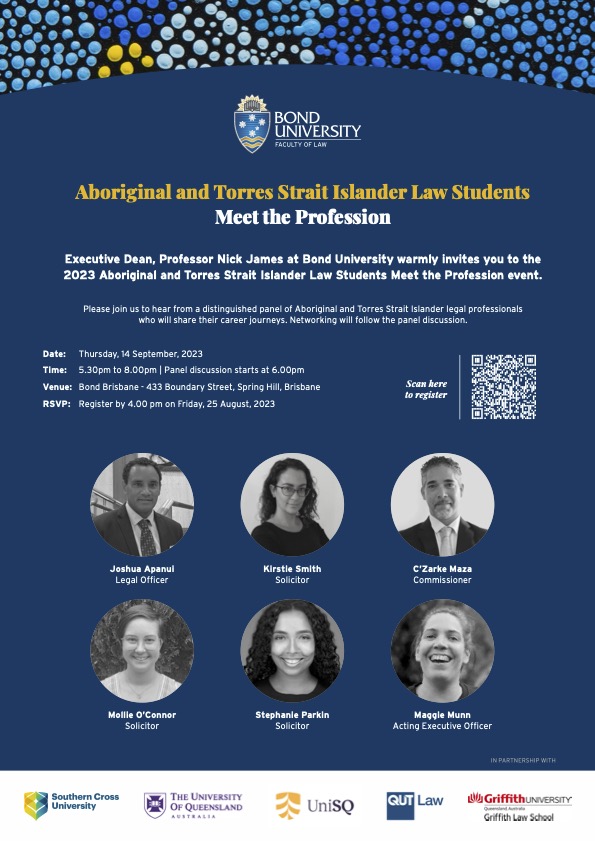
UniSQ’s School of Law and Justice conducts an active and successful series of research seminars on a wide variety of legal topics for staff, students, and members of the legal community.
The research seminar series is convened by Dr Sarah McKibbin. The seminars are usually held on the fourth Wednesday of every month from February to November. The seminars consist of a formal research presentation (40–45 minutes) followed by an opportunity to ask questions. The series hosts presenters from within UniSQ, from other universities in Australia, and from universities overseas.
Unless otherwise noted, seminars take place from 12.30pm to 1.30pm (Qld time). They will be presented on campus (Toowoomba and Ipswich campuses) and online (Zoom). All are welcome to attend.
Many past research seminars are recorded and available online.
For any enquiries, please contact Dr Sarah McKibbin: sarah.mckibbin@unisq.edu.au.
| Date | Speaker | Title | Venue | |
| 8 February* | Prof Dwight Newman (Saskatchewan) | Retroactive Constitutional Amendments Abstract | Q402 (TWB)† /Zoom | |
| 28 February | Assoc Prof Andrew Hemming | Which Brother? Was There One or Two Homicidal Killers in the Gilham Family? Abstract | Q402 (TWB)/Zoom | |
| 27 March | Kiri Edyvean-Rouhan | Collaborative Practice in Wills and Estates: A Resolution-Focused Approach to Conflict over Inheritance Abstract | Q402 (TWB) /Zoom | |
| 24 April | Dr Rhett Martin | Regulating Natural Capital Markets: An Agricultural Perspective Abstract | Q402 (TWB) /Zoom | |
| 22 May | ||||
| 26 June | Dr Sarah McKibbin | TBC | Q402 (TWB) /Zoom | |
| 24 July | Dr Gianni Ribeiro | TBC | T108 (IP)‡/Zoom | |
| 28 August | Prof Noeleen McNamara | Wine Law: Current Issues | T108 (IP)/Zoom | |
| 25 September | Prof Simon Young | First Nations Water Rights in the US | Q402 (TWB) /Zoom | |
| 23 October | Dr Jeremy Patrick | Otiose Provisions of the Australian Constitution | Q402 (TWB) /Zoom | |
| 27 November | Prof Mary Keyes (Griffith) | TBC | Q402 (TWB) /Zoom |
* This seminar is being held on a Thursday, but at the usual time of 12.30–1.30pm (AEST).
† TWB = Toowoomba campus
‡ IP = Ipswich campus






Recent Comments